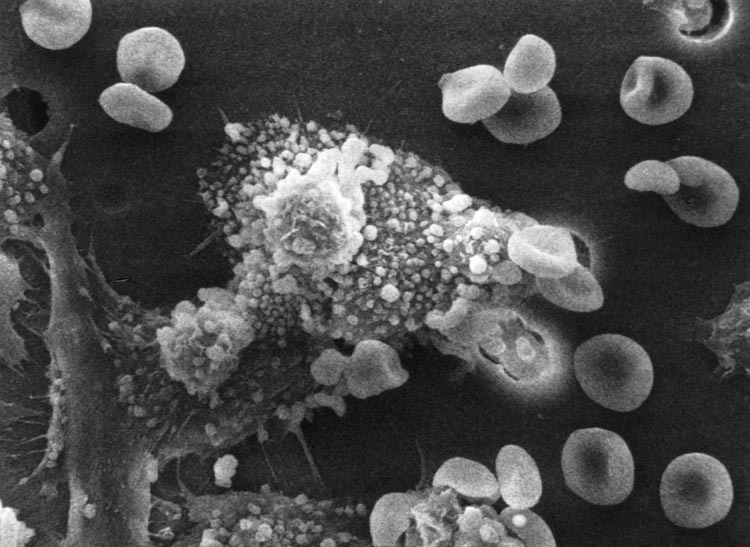Leading Scientists funded by a St Andrews charity have discovered a “rogue gene” that could stop cancer from spreading if blocked by the right drugs.
The development has been heralded as a “major breakthrough” capable of revolutionising the treatment offered to millions of patients across the world.
Experts said the discovery would lead to a “new generation” of drugs which could ultimately stop the spread of most forms of cancer.
A team of scientists at the University of East Anglia (UEA) made the “exciting” breakthrough in research funded by St Andrews charity the Association for International Cancer Research (AICR).
The culprit gene known as WWP2, is described as an enzymic bonding agent found inside cancer cells. It attacks and breaks down a natural inhibitor in the body which normally prevents infected cells from spreading.
The UEA team found that by blocking WWP2, levels of the natural inhibitor are boosted and the cancer cells remain dormant.
If a drug was developed that deactivated WWP2, conventional therapies and surgery could be used on primary tumours, with no risk of the disease taking hold elsewhere.
Lead author Andrew Chantry, of UEA’s school of biological sciences, said halting the critical late stage of the disease, when cancer cells spread to other parts of the body, would have enormous implications.General applicationHe believes most forms of cancer could be stopped, including breast, brain, colon and skin cancer.
“The late stages of cancer involve a process known as metastasis a critical phase in the progression of the disease that cannot currently be treated or prevented,” he said. “The challenge now is to identify a potent drug that will get inside cancer cells and destroy the activity of the rogue gene.”
Dr Mark Matfield, scientific co-ordinator with AICR, was thrilled to learn of the potentially life-saving development.
“This is an exciting new discovery and a good example of how basic research into cancer can open up the potential to develop new methods to treat the disease,” he said.
The initial discovery was made while researchers were studying a group of natural cancer cell inhibitors called “smads.”
Dr Surinder Soond, who spearheaded the experimental work in the laboratory, said there was “very great potential.”
“This is a very novel and exciting approach to treating cancer and the spread of tumours,” he added.The team’s findings are published in the latest issue of the Oncogene journal.
